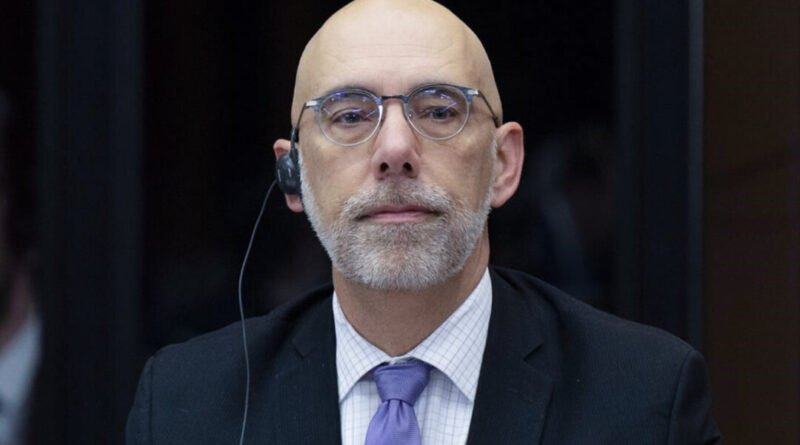Budget Watchdog Reports Online Harms Bureaucracy to Cost $201M Over Next 5 Years
The federal budget watchdog estimates that maintaining the bureaucracy created by the Liberal government’s Online Harms Act will cost $201 million over five years.
The Parliamentary Budget Officer (PBO) published a legislative costing note on July 4, analyzing anticipated expenses for operating the Digital Safety Commission, the Digital Safety Ombudsperson, and the Digital Safety Office.
The total projected cost for the fiscal years 2024-2025 to 2028-2029, based on preliminary estimates from Heritage Canada, includes 330 full-time employees.
This cost estimate does not encompass potential fines or regulatory charges that the new office could impose on service providers.
The PBO did not calculate these revenues, citing uncertainty about the cost recovery mechanism to be established.
“There is a high level of uncertainty regarding the revenue generation, as it relies on the compliance of external entities with the requirements outlined by the Commission and the Online Harms Act,” added the PBO.
Ottawa has encountered difficulties persuading big tech companies to comply, as Meta restricted Canadians’ access to news links on its platforms in reaction to the Online News Act.
In a Substack post on July 4, Conservative MP Michelle Rempel Garner shared her request for the PBO’s analysis of the cost of Bill C-63.
She pointed out that the absence of a defined cost recovery mechanism “means that Canadian taxpayers could potentially bear the burden of a large bureaucracy that would enable big tech companies to negotiate favorable terms with unelected regulators behind closed doors.”
The budget watchdog warns that operating costs could increase if the Online Harms Act bureaucracy opts to engage external resources such as consultants or lawyers once it reaches full capacity.
Heritage Canada did not respond to requests for comment by The Epoch Times’ publication deadline.
Online Safety
The government presented the Online Harms Act (Bill C-63) in February to “enhance the online safety of individuals in Canada.”
As outlined in the bill, the Digital Safety Commission’s role is to oversee and enforce the act, particularly regarding social media companies, while the ombudsperson would offer assistance to social media users. The Digital Safety Office is anticipated to support both entities.
In addition to establishing this new online safety bureaucracy, Bill C-63 aims to introduce a new hate crime offense that could result in life imprisonment.
Individuals who believe they are victims of online hate would be able to lodge a complaint with the Canadian Human Rights Commission. In cases of violation, the offender could face a fine of up to $50,000 and be required to pay up to $20,000 in compensation to the victim.
The bill also includes provisions for the arrest and placement of individuals in a peace bond if there are reasonable grounds to suspect they may commit a hate crime or disseminate hate propaganda.
The Online Harms Act also aims to enhance online protection for children, including provisions compelling the removal of child exploitation content within 24 hours.
The second reading of Bill C-63 is ongoing in the House of Commons, with major speeches from MPs delivered on June 7.
Justice Minister Arif Virani, the bill’s sponsor, emphasized the personal significance of the issue to him, linking recent attacks that targeted Muslims in Canada to online radicalization. He stated, “Online hatred has real-world consequences.”
Opponents, particularly Conservatives, have criticized the bill as a threat to freedom of expression. In response to Virani’s remarks, MP Rempel Garner argued that the bill has faced widespread condemnation from various groups due to forcing Canadians to make unnecessary trade-offs between security and charter rights.
NDP House Leader Peter Julian criticized the government for delays in introducing the bill, highlighting what he sees as a significant flaw related to the lack of transparency around algorithms affecting children exposed to hateful content online.
The Bloc Québécois recommends dividing the bill into two parts, separating clauses related to child pornography removal or intimate content sharing from those concerned with hate speech and the Criminal Code.
“The current situation on the Internet and online platforms is unacceptable,” stated Bloc MP Claude DeBellefeuille.
Over a dozen civil society groups also urged splitting the bill last May.
In March, billionaire Elon Musk, owner of the social media platform X, drew attention to Bill C-63, labeling it as “insane” for potentially issuing life sentences for speech-related offenses. The bill was criticized by Musk.
“It appears that you agree that we all have a responsibility to safeguard free expression by combatting the most extreme forms of hate speech,” Virani replied to Musk on X.





